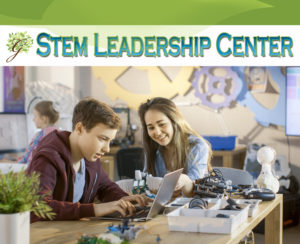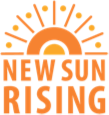 A friend wrote and asked last week: “My grandchild will turn 6 in September. Do you know of any game or book for her age to get the math and science query started? She starts Kindergarten late August.” (thanks Anna Mae!)
A friend wrote and asked last week: “My grandchild will turn 6 in September. Do you know of any game or book for her age to get the math and science query started? She starts Kindergarten late August.” (thanks Anna Mae!)
Here are my ideas… Do you have others?
1) Books! So important. As an author, I appreciate when people buy them, but I believe children should be surrounded by five to ten new books every week. Make friends with her local library! Email or visit the children’s librarian for ways to get involved. If you are not geographically present, spend time with your grandchild on Skype, Google hangouts or on the phone and help her pick 3-5 books to order each week. My son and I go online every week (he now does it on his own) and orders books to be waiting on the reserve shelf of the library when we stop by every Tuesday (keeping the same day each week avoids overdue charges). Library books are no longer just tactile folded paper, but come in CDs for the car, mp3s for the pocket, e-books (yes, libraries have books for your Kindle!), and discussion clubs (even for kids!).
(Ian fell in love with fantasy novels early on – adventure stories of a hero who must journey to discover what is truly important, where magic is a metaphor for power that is the quest of anyone, particularly children, who stand powerless before injustice, and imagination is mythologized as a purse with no bottom or a wardrobe that enters a whole new world. He has posted some of his favorite authors at http://www.ellencavanaugh.com/passions/reading-and-books/fantasy-novels/)
Where do we find the book lists? I start at Amazon.com.
That gives me a chance to glance through pages and read reviews. I usually go the next higher age group than the child I’m surfing for. Favs from that age … hmmm…. Mary Pope Osbourne, Peggy or Herman Parish, and Kids Science magazines. The neat thing about using Amazon and the library is you are starting a life long habit of getting to know individual authors. Once you find one you like, travel down Amazon’s pages and they recommend others like them. You can also surf the web for news of the author, subscribe to their blog, write them a note of encouragement, etc.
2) There are games you can play with her on Facebook… Farmville can be used to teach economics and biology, angry birds is great for math and physics. You have to remember to use them for math and science! The web can help give you tools to discuss, for example watch Farmville Economics and Projectile Motion Using Angry Birds and derive some of your own questions to explore: How could we try to figure out what to plant? or Is there a way to use math to help us figure out where the bird will land? Keep the questions fresh so that when she learns the math tools to solve the question, math is relevant. You don’t have to teach her the math, you have to be there to listen when she learns it and is all excited about it. Let her discover how to solve the problem and teach you!
3) Toys: Lego is great for building. Aliceis a free download to teach programming (and yes – she is old enough to use Alice). I still prefer an empty box and asking what she wants to make of it. Send her something old that she can take apart and find out how it works. There are several game making software programs that are accessible to young children, lots for older kids. Find out more by following the links in the Grow a Generation Game Making Tools Directory.
4) Become her sponsor and turn a spark into a flame. Jess’s grandmother helped sponsor her on her trips toAfricato teach and learn from other cultures. Lessons in how to engineer infrastructures from scratch made her more aware of our own crumbling infrastructures and the need for engineering innovation.
5) Subscribe to a group that sponsors girls in STEM fields and pass on encouraging messages and news. Check out 30 Organizations for Women in Technology and the Female Alliance of Stem Education
6) Most important is to follow her lead. When she asks a question, respond “Let’s wonder about that!” and let her keep exploring. Encourage questions that have more than one answer. Ex: When standing in the checkout line of Toys R Us, how could we figure out which checkout line would move the fastest? Math and science are tools. Promote inquiry, then reach into the math and science handbags with the aide of research librarians to begin to solve the problems in new and creative ways.
7) Have a wonderful time!! She is so lucky to have you.



